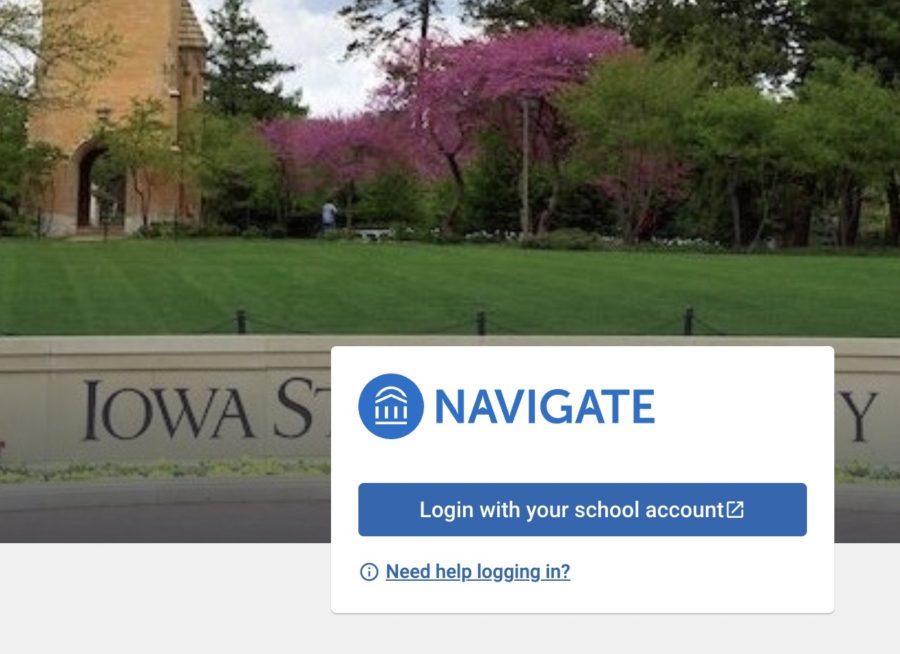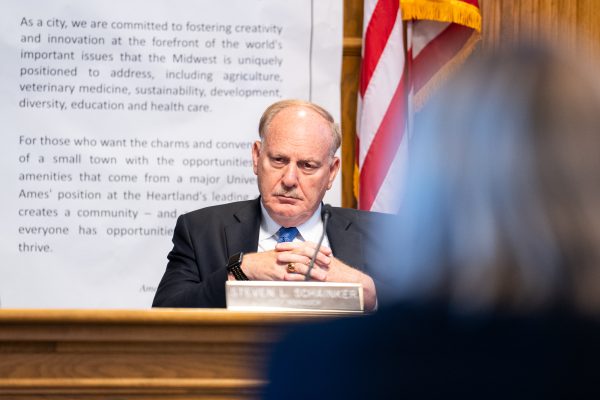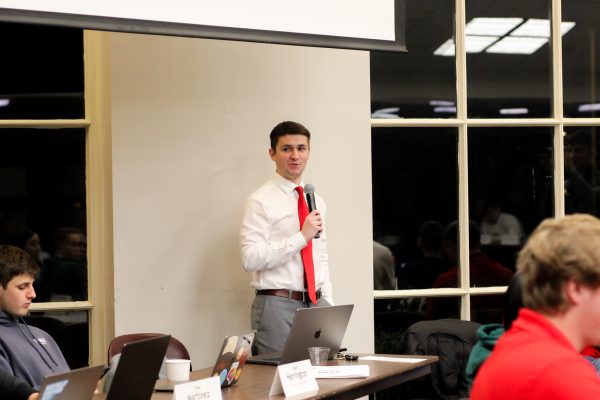Unpredictable adviser assignments create obstacles for students
Navigate is a student success platform that current undergraduate students can use to schedule appointments with academic advisers.
Several one-on-one meetings and weekly class interactions helped Piper Michalski develop a trusted connection with her academic adviser. However, this connection was severed when she was assigned a new adviser after less than one year.
Students like Michalski are often reassigned to new academic advisers in the aftermath of retirements or job transfers, which can create obstacles with communication and relationship building.
Malinda Cooper, an academic adviser for the design department, said the College of Design has experienced a lot of adviser turnover in recent years, which she has also observed across the university.
“I think overall there’s been a change in the advisers in departments all across the campus,” Cooper said.
Jessica Hansen-Moench, the assistant director of academic advising for communications, said there are many common reasons advisers at Iowa State have been leaving or transferring.
“We’ve had a lot of retirements, and people are also just finding new jobs,” Hansen-Moench said. “Sometimes there are restructures, so there have been some new models where there used to be faculty advisers and now they’re professional advisers.”
Cooper said some advisers may be entering the profession for intentions that do not align with the job or discovering new career opportunities.
“I don’t know if it’s a generational thing…but younger millennials, what works for them is to hop around,” Cooper said. “They want to get more experience at doing different things or they just have more interest in financial things like that.”
Cooper said their finances can also be a factor, although it is not something she worries about.
“At Iowa State a lot of people may complain that they don’t get paid as much as they could,” Cooper said. “I don’t see that as an issue. Your benefits and everything balance out.”
Cooper said that as a member of Generation X, she remains committed to the same job. For her, being an academic adviser is about enjoying time with students and helping others.
“You don’t go into education because you want to make money,” Cooper said. “You go into education because you want to serve a purpose.”
Michalski, a freshman studying apparel merchandising and design, said she feels that information sometimes gets lost during adviser transfers, which requires students to advocate for themselves more.
“I have early registration, and my adviser now didn’t even know about that, so I had to reach out to her and make the registration appointment,” Michalski said. “It was completely fine, but I was just a little confused, and I think she was a little confused as well.”
When advisers leave or transfer, it can also put stress on their co-workers. Cooper serves as the temporary interim in the College of Design, which means she supports the students who were assigned to an adviser who left.
“I have 300 more students this year than I should have,” Cooper said.
If a new or temporary adviser is assigned, this change automatically updates and appears under a student’s file, according to Cooper. Even if they receive an interim adviser, there will always be an assigned staff member for students to locate and work with.
“[The college of design] has four advisers right now for all of our majors, and we’re adding a fifth one because our advisers have the highest loads across campus,” Cooper said.
Noelle Pendroy, a sophomore studying pre-interior design, feels that transitioning to a new adviser can be both harmful and beneficial to a student’s academic progress.
“You have to build a new relationship and get used to the new adviser, but maybe they are better than the last adviser and that relationship will connect right away because they have more expertise in the field you’re going into,” Pendroy said.
Pendroy said she received a new adviser within her first semester at Iowa State who provided her with additional resources and support. Pendroy’s new adviser reached out to her and recommended a class that would help her fulfill a requirement, which is advice she did not get beforehand.
“I’m hoping that my new adviser can stay in her current position because it will make that bond with students grow stronger,” Pendroy said.
Michalski said transitioning to a new adviser is difficult when advisers have different styles or opinions on how certain processes should be completed.
“I think that it is hard especially to be a junior or senior and you’re used to one adviser doing something one way, and then another adviser chooses to do something another way,” Michalski said.
Your donation will support the student journalists of the Iowa State Daily. Your contribution will allow us to purchase equipment, send our student journalists to conferences and off-set their cost of living so they can continue to do best-in-the-nation work at the Iowa State Daily.













Cael Sleezer | Apr 25, 2023 at 9:34 am
I’m glad I’m not the only one struggling with rotating advisors. Great article!